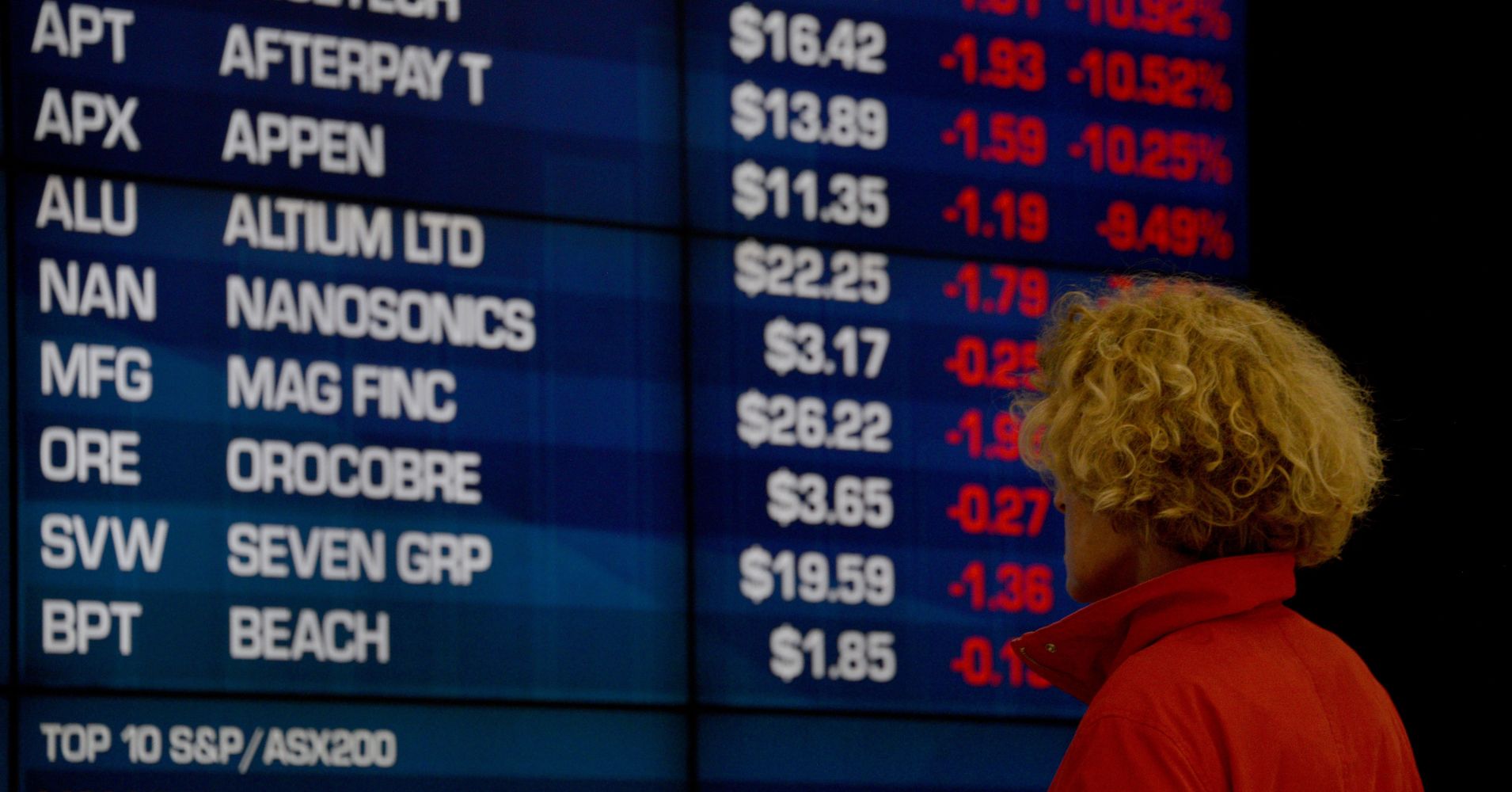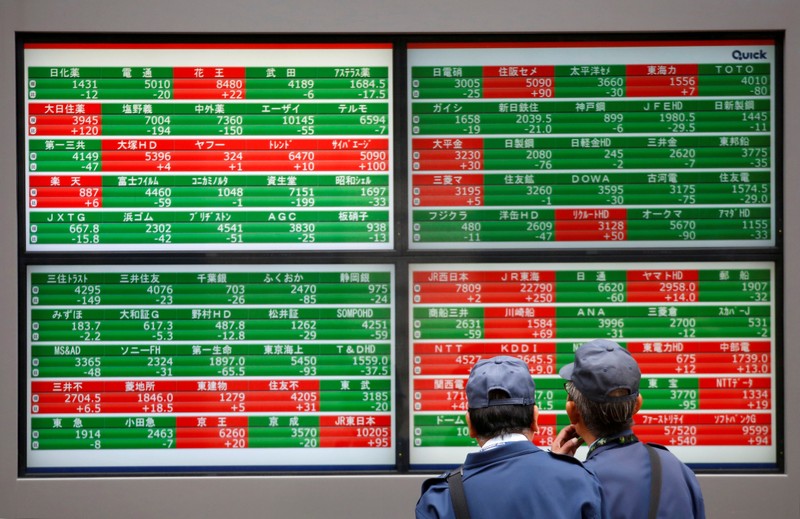
Stocks in Asia traded lower Monday morning following significantly weaker-than-expected Chinese trade data released over the weekend.
Japan’s Nikkei 225 fell more than 2 percent in early trade while the Topix index dropped 1.88 percent. Shares of Japan Display plunged 9.09 percent in the morning after the company earlier said it had no plans to cut production of its smartphone panels in December, following reports which said it was planning to do so.
Meanwhile, South Korea’s Kospi also slipped 1.45 percent, with chipmaker SK Hynix dropping 2.69 percent.
Over in Australia, the ASX 200 fell 1.71 percent earlier in morning trade to touch lows not seen since Dec. 2016, with almost all sectors seeing losses.
The financial subindex Down Under fell 2.35 percent as shares of Australia’s so-called Big Four Banks declined. Australia and New Zealand Banking Group dropped 2.76 percent and Commonwealth Bank of Australia fell 2.6 percent. Westpac slipped 2.53 percent and National Australia Bank was down 1.79 percent.
The mainland Chinese markets, closely watched as a result of the trade war between Beijing and Washington, are set to open at 9:30 a.m. HK/SIN.
China reported notably weaker than expected November exports and imports, which pointed to slower global and domestic demand and raised the possibility that Beijing may undertake more measures to boost growth.
November exports rose 5.4 percent from a year earlier, according to Chinese customs data on Saturday, which was below the 10 percent jump predicted by a Reuters poll. That number was also the weakest performance since a 3 percent contraction in March. The customs data showed that annual growth for exports to all of China’s major partners slowed significantly.
Import growth was 3 percent, the slowest since October 2016, and a fraction of the 14.5 percent expected in the Reuters poll. Imports of iron ore fell for a second time, reflecting waning restocking demand at steel-mills as profit margins narrow.
“China’s November trade data missed expectations by a hefty margin,” said analysts from the Commonwealth Bank of Australia in a morning note.
“Softer export growth reflects slower global growth and the fading effect of US importers’ front‑loading shipments to avoid increases in tariffs. Falling import growth points to softening domestic demand. But we expect Chinese fiscal stimulus to support imports in 2019,” they said.
U.S. Trade Representative Robert Lighthizer told CBS in an interview on Sunday that the end of the 90-day pause in tariff escalation between Washington and Beijing in their trade war is a “hard deadline.”
“As far as I am concerned it is a hard deadline. When I talk to the president of the United States he is not talking about going beyond March,” he said on the CBS show “Face the Nation,” referring to President Donald Trump’s decision to delay tariffs imposition until March 1 while talks proceed.
At the G-20 summit in Argentina, Trump and Chinese President Xi Jinping struck anagreementto delay imposing additional tariffs on each other’s goods for 90 days.
The U.S. dollar index, which tracks the greenback against a basket of its peers, was at 96.661 after touching highs around the 97.2 handle last week.
The Japanese yen, widely viewed as a safe-haven currency, traded at 112.52 after seeing lows around 113.8 last week. The Australian dollar was at $0.7188 after touching highs around $0.739 in the previous week.
— Reuters contributed to this report.

